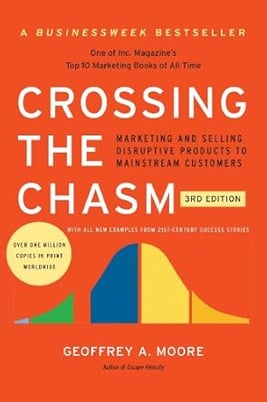MICHAEL DIETRICH
CIO-at-large at McLaughlin Moore
Can you please provide a little introduction about yourself
My name is Michael (Mike) Dietrich and while I have lived and worked all over the world, I call home a small town an hour north of Detroit. I am the CIO-at-large for Mclaughlin Moore and my specialization is leading the adoption of innovative technologies through IT and business transformations.
What has your journey to your position been like? What path have you taken?
My path to IT was through business. I started my career in Marketing, moved to Operations, then to Finance and finally, into IT. I have been an executive director of worldwide marketing for a Fortune 50 company, a COO, a CFO and SVP of Cloud and Infrastructure Engineering and most recently, Global CIO/CISCO. I have always gravitated to business transformations and leveraging new technologies to achieve unimaginable goals.
A key pillar of my success has been the result of my path through business: coming from the business side has aided immeasurably in my abilities to leverage innovative technologies to solve business problems. I know what it takes to be successful in business and the struggles to be outstanding in leading business teams. I also know the importance of IT to the success of the business and the spectacular achievements that can be realized by working closely together.
Has it always been your vision to reach the position you’re at? Was your current role part of your vision to become a tech leader?
I recently confided with a close friend of mine who knew me early in my career. I told him that I was surprised that I was so happy and successful in IT and even more surprised when I had become a CIO, considering where I started from back in the day. He told me that he thought I was always a technologist working in the business and that the path may have been unusual, but every step had given me insight and tools that have made me successful.
In reflecting on his comments, I could see his point, for example, my time as CFO and my work at the University of Michigan in developing strategies to achieve transactional cost supremacy throughout business value streams have been instrumental in extracting financial effectiveness as a CIO. Experience outside of IT has given me perspective and demonstrated the value of listening to understand and experience in technology has reinforced that nothing is impossible.
Have you had a role model or mentor that has helped you on your journey?
I had many people who helped me at critical times in my career. From the executive who gave me my first opportunity and mentored me through to my first executive role, to the great IT leaders who gave me a chance to prove myself and helped shape my thinking while being open to my unorthodox methods.
Of course, it is every leader, good or bad, that teaches us critical skills and helps us create our own brand, and it is every member of our team and the people we work with along the way that give us support, challenge us and make the journey worthwhile. I am intensely grateful that I have had all that and more.
How do you see the role of the technology leader evolving over the next 5 years?
The great thing about technology is change. Change challenges us to create new ways of working, to challenge the status quo, to find solutions to problems based on what can be achieved today and tomorrow and not be anchored to our past experiences. As technology evolves, technology leaders must be leaders, not managers. You lead people, you manage things.
In high-change environments, the technology leader must lead people through change, they must master the skills to work effectively in highly ambiguous situations and they must always remain a student of the game - investing in their own education and pushing their teams to become expert generalists - technologists that have deep skills in one or two areas but are well versed in all areas - especially in business. The past is a good predictor of the future if nothing changes and everything changes. Technology leaders must break free of the past and build the future by creating new ways of working to solve today's and tomorrow's problems.
What skills do you think leaders of the future will need in order to thrive?
I believe that leadership is the number one skill they must possess, master and invest in to be effective. Being a technologist without the ability to lead people makes you unfit to lead today, and certainly in high-change environments. IT leaders need to remain humble and maintain the curiosity of 5-year-olds, constantly ask why and seek to understand the business problems that need to be solved and be relentless in the pursuit of truth beyond the hype of innovative technologies.
Organizations are counting on IT leaders to demystify technology, simplify it and make it friendly to the average user. For example, IT leaders need to understand AI, completely. They need to be able to transform AI, artificial intelligence, to achieve AI- Augmented Intelligence. AI technology is great, but the goal of the IT leader is to shape it to augment the intelligence of every person in the business and give them new tools that accelerate their success by providing new tools that enable the business to exceed the customer's needs.
Is there anything in particular that you would still like to achieve in your career or what is the next step on your journey?
I remain a student of the game, intensely curious, and I still wake up every morning thinking about how I can be better, be prepared for what's next and be indefatigable in the face of challenges. I know at this point in my journey that I am only really happy when I am working for a great leader, with an impossible challenge and working for a great company.
It is in those environments where I believe I can help organizations achieve the impossible and where I have the opportunity to mentor people to become the best versions of themselves. My next step is to keep walking the path that got me here and enjoy the journey.
What advice would you give to aspiring technology leaders who are just starting their careers?
First, I would challenge any aspiring leader to start their day doing something they love. Whether that is mediation, running, working out or anything that gets you moving and ready for the day. Then dedicate time to learn your boss's job: you can't expect to be promoted into a role that you have no idea how to do. Volunteer for everything, listen and ask questions. Then be relentless in doing your job at 100% all day - prioritize people over tasks and never miss an opportunity to help. At the end of your day, before you log off for the night, make sure you have responded to every call, email or note - build a reputation of excellence and accountability that people will notice.
Finally, there is no such thing as work/life balance. Your life is your priority, your family, your health and your investment in you. You work as a way to live your life, but you must acknowledge that your work matters to you and your family, never forget that it is your life and the decisions you make are yours. What matters most is not what you have done, what matters most is what you do next.
"Your life is your priority."
What role do you see emerging technologies (e.g., AI, machine learning, blockchain) playing in your industry, and how are you preparing for them?
How do you measure and communicate the value and impact of technology initiatives to other business leaders and stakeholders?

A big thank you to Michael Dietrich from McLaughlin Moore for sharing his journey to date.
If you would like to gain more perspective from Tech Leaders and CIOs you can read some of our other interviews here.
June 12, 2025


